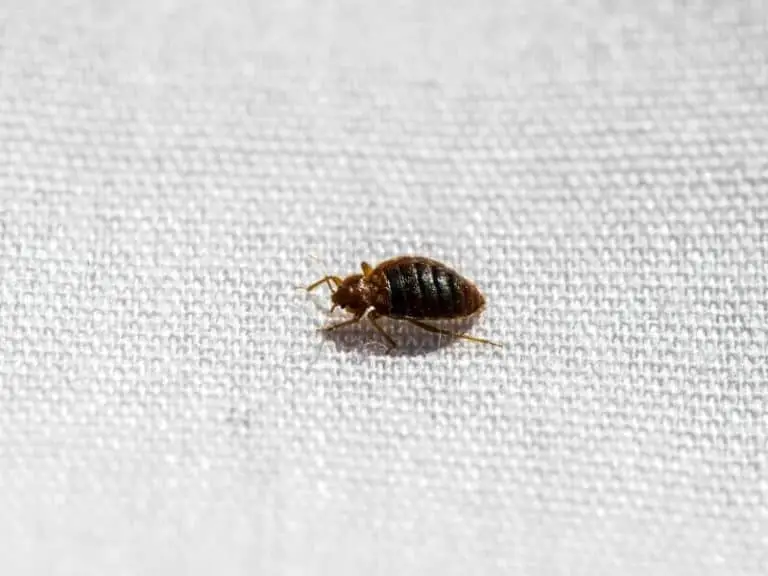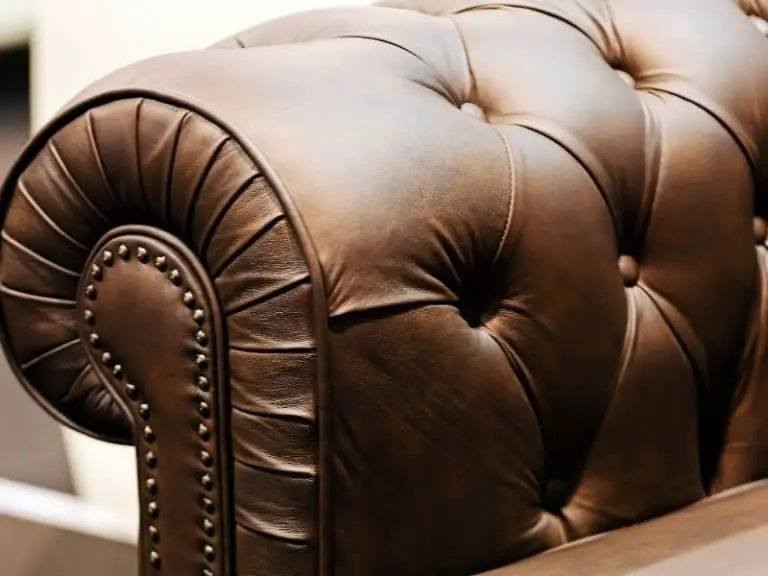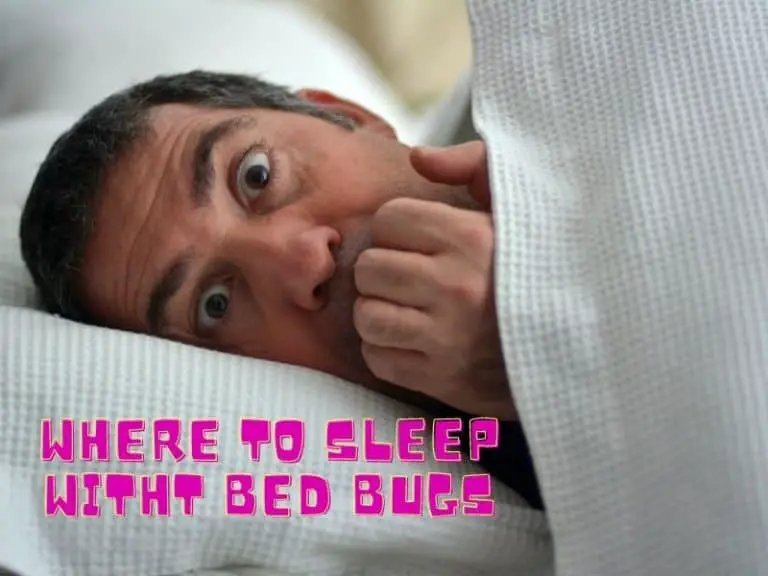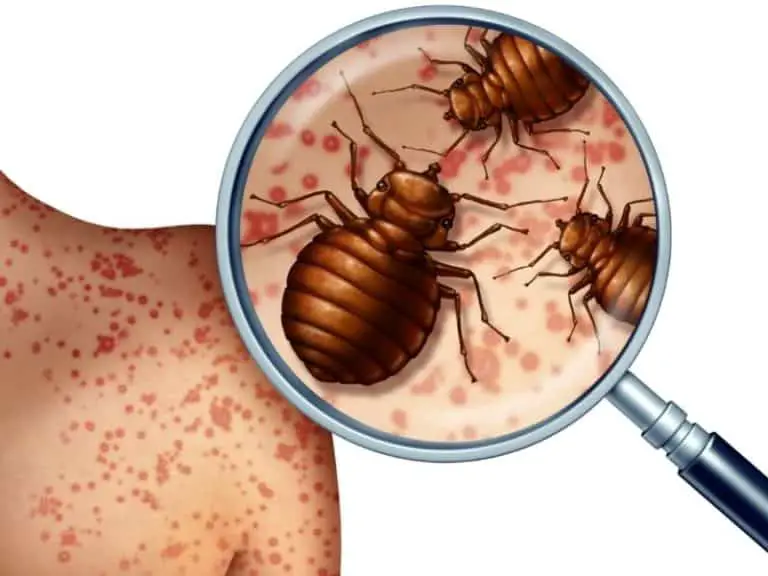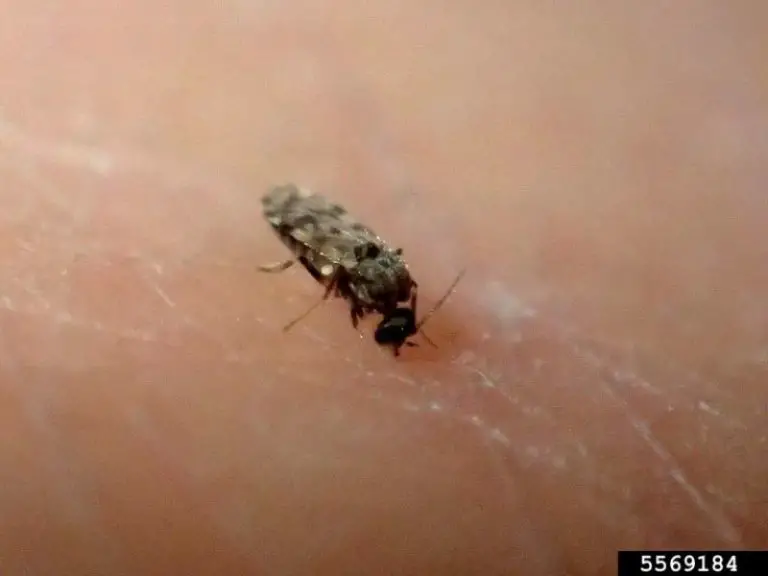Can Sleeping With Light On Scare Bed Bugs Away: Facts vs Myth
Because they only come out at night to drink blood, you can think of bed bugs as vampires. It’s no secret that vampires cannot stand sunlight. Because of this, a lot of people tend to believe that they can keep those bloodsucking bed bugs from having the opportunity to feed by leaving the light on as they sleep at night.
Can sleeping with the light on keep bed bugs from biting?
Bed bugs come out of hiding when they sense that their host is already fast asleep. While it is true that bed bugs associate the absence of light with feeding times, they also take into account their host’s activity level, body temperature, and carbon dioxide production.
Leaving the light on while sleeping may trick bed bugs into thinking that it is not yet time for them to feast on your blood. Their urge to feed, however, will grow stronger and stronger.
When that happens, those bed bugs will no longer mind the light. They will go out of hiding, crawl on exposed skin, and consume your blood.
Pro-tip: Exposing bed bugs to high temperatures (over 120°F) kills them in a matter of minutes. If you want to get rid of bed bugs without calling an exterminator check the best steam cleaners that produce over 300°F on Amazon now.
Bed Bugs Do Not Really Hate the Light
First things first: Bed bugs are nocturnal creatures not because they are terrified of the light, but because it is during the night when they can easily drink the blood of humans.
You see, unlike other pesky critters out there such as lice, ticks, and fleas, bed bugs are not very good at clinging to the skin of their hosts.
At night while fast asleep, their main source of sustenance (yes, you!) has very little to no activity. This makes it trouble-free for bed bugs to crawl on your skin and feast on your blood.
Since bed bugs have associated the absence of light with nighttime, which is a time when people are lying still in bed, they have made it a habit to get a dose of human blood only when it is dark.
That’s because it is the most effortless moment for them to feed, as dictated by the way that their short legs are designed.
But then again, bed bugs are not really afraid of the light, unlike vampires to which they are often compared.
This is why sleeping with the light on won’t keep them from consuming your blood, especially if they are already famished.
During the first few nights of leaving the light on as you sleep, those bed bugs may think that it is daytime and you are wide awake, too. However, time will come when they will realize that they are just being tricked.
Besides, it is not just the presence or absence of light that bed bugs use as a gauge to determine when it is time to hide and when it is time to eat.
Bed Bugs Can Bite Even During the Day
It’s no secret that it is while you are fast asleep when bed bugs treat themselves to your blood. But did you know that they can also do the same even when you are wide awake?
Aside from the light, there are other things that bed bugs use for figuring out whether they should be hiding or eating. Some of them include your activity level, the temperature of your skin, and the carbon dioxide and pheromones (chemical signals) that you are giving off.
Even when there’s light, it is still possible for those bloodsucking creatures to feed provided that the other conditions are met. So, in other words, they can abandon their being nocturnal beings, especially when hungry.
For instance, it is not unlikely for bed bugs present in your office to have a taste of your blood right in the middle of work hours.
This is most likely to happen when you are not moving around that much, such as when reading a long email or doing a few minutes of meditation in your office chair, so sleeping with the light turned on will not stop bed bugs.
Steps to Take (Other Than Keeping the Light On)
Knowing that, in a few hours, some bed bugs will show up and drink your blood can leave you feeling stressed and anxious. In turn, it can keep you tossing and turning in bed all night long.
Worry not because there are some things that you may do before hopping in bed to keep the number of bed bug bites the following day to a minimum:
Encase your mattress in plastic
Online and offline, you can easily get your hands on a mattress encasement. Made of plastic, it is designed to trap bed bugs in the mattress, preventing them from biting.
Using a mattress encasement for months can cause bed bugs to starve to death. Unfortunately, the product cannot keep bed bugs elsewhere in your bedroom from crawling onto your bed and feasting on your blood.
Move your bed away from walls and furnishings
After purchasing and installing a mattress encasement, it is a good idea for you to place your bed away from anything that could be harboring bed bugs, like a wall, nightstand, dresser, chair, or curtains.
This may not be a foolproof way to keep bed bugs from getting onto your bed to eat. However, it can help in considerably reducing your chance of waking up the following morning with lots of itchy red bumps on exposed areas of the body.
Cover as much of your body as possible
Speaking of exposed body areas, you should carefully choose your sleepwear if you want to have a good night’s sleep despite having a bed bug infestation.
Avoid wearing anything skimpy at all costs. Sleeping without clothes is a complete no! Consider wearing a pajama and a pair of socks, too. Sadly, your hands, neck, and face may still invite those bed bugs to bite.
It is also important to spring into action during the day while those bed bugs are stuffed with your blood and resting in their favorite hiding places. It is completely up to you if you will go for some home remedies for bed bugs or get in touch with professional bed bug exterminators in your area.
Just Before You Flick That Light Switch
Although it is true that bed bugs are not particularly fond of the light, sadly, keeping the light on as you sleep won’t keep them from drinking your blood.
Well, during the first couple of nights, it may discourage those pesky critters from going out of hiding. However, once they are hungry, the light has no more power over them.
Instead of sleeping with the light on, it is a much better idea for you to come up with a plan for putting the bed bug infestation under control, particularly one that has long-term effects.
For this, you can either go for the DIY approach or hire an exterminator. Dealing with the problem via some home remedies involves steps such as vacuuming, steam cleaning, and spraying trouble spots with rubbing alcohol or distilled vinegar.
On the other hand, letting the pros take care of the problem involves killing those bed bugs with chemicals (the cheaper approach) or with heat (the more expensive approach). Ask the service provider of your choice which treatment is ideal for your budget and the extent of the infestation.
No matter your preference, one thing remains true: You should act on the infestation as soon as possible so that you can go back to having a good night’s sleep each time.
Related Questions
Why do I have bed bug bites in the morning but the person I share the bed with doesn’t?
Different bed bugs have different preferences when it comes to the blood that they drink. If it seems like those bed bugs are zooming in on you instead of the person sleeping in the same bed, it only means that they prefer your blood more.
Is there something that I can apply on my skin at night to repel bed bugs?
Many people swear by the effectiveness of applying diluted lavender essential oil on exposed body areas before going to sleep. Some who don’t like the greasiness go for baby powder. Rubbing alcohol may be applied, too, but it tends to evaporate quickly.
Medical Disclaimer: TheHomePestControl is a digital publisher and does not offer personal health or medical advice. The contents of this website are not intended to substitute for professional medical advice, diagnosis, or treatment.
Affiliate Disclaimer: As an Amazon Associate, I earn from qualifying purchases made on our website. If you make a purchase through links from this website, I may earn a commission at no additional cost to you.

